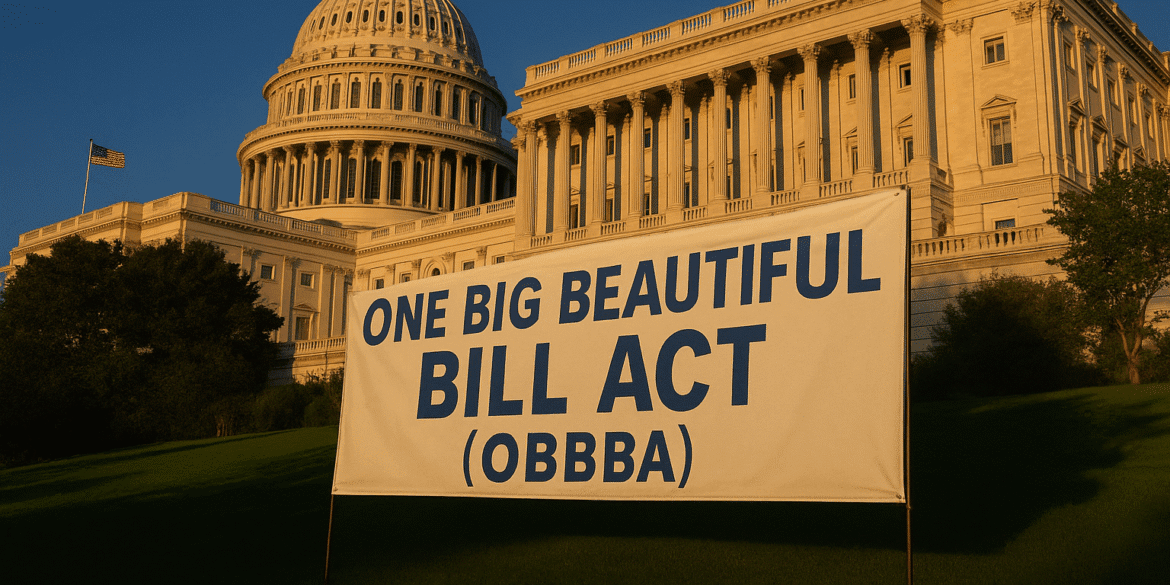On May 22, 2025, the U.S. House of Representatives narrowly approved the “One Big Beautiful Bill Act” (OBBBA), a comprehensive budget reconciliation package that brings sweeping changes to federal social safety net programs. Passed by a 215–214 vote, the bill mandates work requirements for Medicaid recipients and imposes deep cuts to the Supplemental Nutrition Assistance Program (SNAP), raising immediate concerns about the impact on low-income and vulnerable populations across the country.
Key Provisions: Medicaid and SNAP Overhaul
A major component of the bill is a federal requirement for able-bodied adults under age 65 without dependents to work, participate in job training, or engage in community service for at least 20 hours per week to retain their Medicaid coverage. Originally scheduled for rollout in 2029, this mandate was moved up to December 31, 2026, after pressure from fiscal conservatives. According to estimates from the Congressional Budget Office (CBO), this provision could lead to as many as 8.6 million people losing Medicaid eligibility.
The legislation also reshapes the structure of SNAP benefits. Among its changes, the bill increases the age cap for mandatory work requirements from 54 to 65, restricts states’ ability to waive work requirements in high-unemployment areas, and shifts more administrative responsibility—and costs—to state governments. Analysts project that these changes could result in up to 3 million households losing access to food assistance.
Supporters’ Perspective: Fiscal Responsibility and Employment Incentives
Supporters of the OBBBA assert that these reforms are necessary to promote fiscal sustainability and reduce dependency on government programs. House Speaker Mike Johnson emphasized that the proposed changes are aimed at empowering individuals to reenter the workforce, which he described as essential for long-term economic stability. Backers argue that work requirements for able-bodied adults are both fair and necessary, ensuring that benefits go to those most in need while encouraging self-sufficiency.
They also claim that reducing SNAP and Medicaid costs could help lower the federal deficit and allow for reallocation of funds to other priority areas such as defense, infrastructure, or education. According to proponents, the bill balances compassion with accountability by offering exemptions for people with disabilities and caregivers of dependents.
Critics’ Concerns: Disproportionate Impact on Vulnerable Populations
Opposition to the bill has been widespread among Democrats, public health experts, and social advocacy organizations. Critics argue that the new requirements will unfairly burden low-income individuals, particularly those already struggling with limited job access, health problems, or caregiving responsibilities. They point out that many recipients already work in unstable, low-wage jobs or face barriers such as lack of transportation or childcare.
Groups like AARP have warned that the administrative demands created by the new policies could lead to confusion, missed deadlines, and loss of coverage even for eligible individuals. They argue that the costs of managing and enforcing work requirements may outweigh the financial benefits, and that the loss of healthcare and food support could ultimately increase long-term public health and social costs.
Political Landscape: Senate Deliberations Ahead
The bill now moves to the Senate, where its fate remains uncertain. While some Republican senators support the objectives of the House version, others have raised concerns about how the changes might affect their constituents, particularly in rural and economically disadvantaged areas. Senate Majority Leader John Thune has indicated that the Senate will revise key provisions of the bill, suggesting a more moderate version may emerge during negotiations.
The Senate deliberations are expected to draw intense scrutiny as lawmakers from both parties consider amendments and alternatives. Advocates on both sides are gearing up for a public campaign to influence the final outcome, aware that the bill represents one of the most significant proposed shifts to federal social programs in recent history.
As debate continues, millions of Americans who rely on Medicaid and SNAP await the outcome, knowing that the decisions made in Washington could dramatically affect their access to basic healthcare and nutrition in the years ahead.

